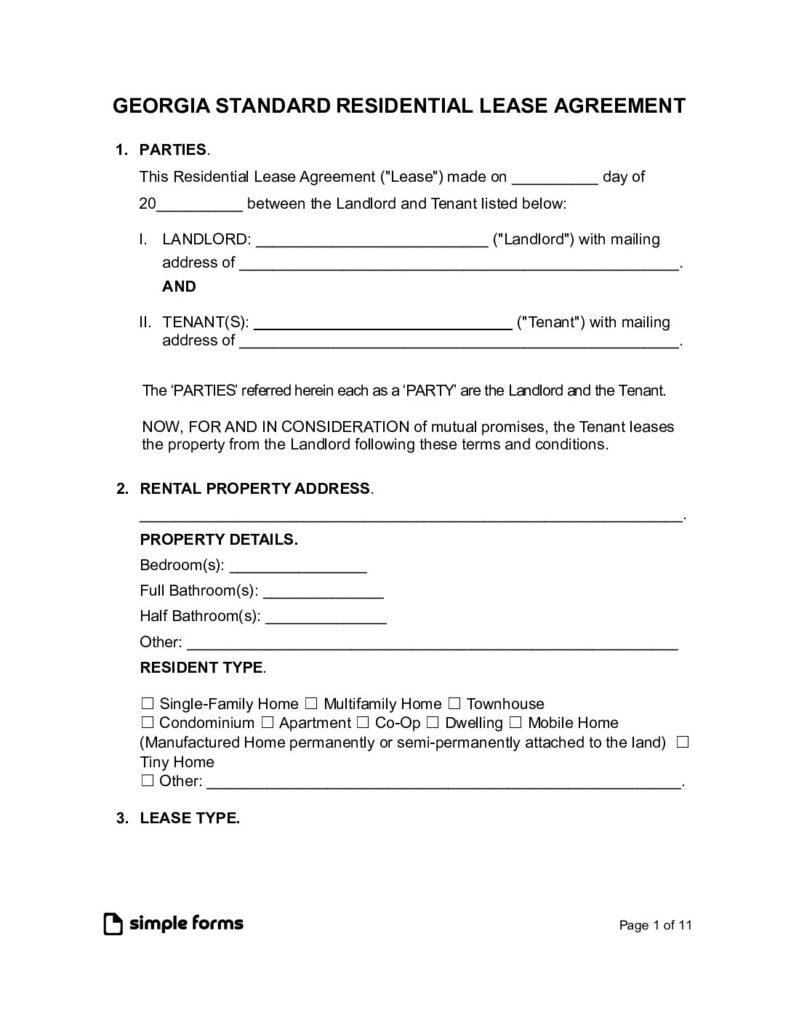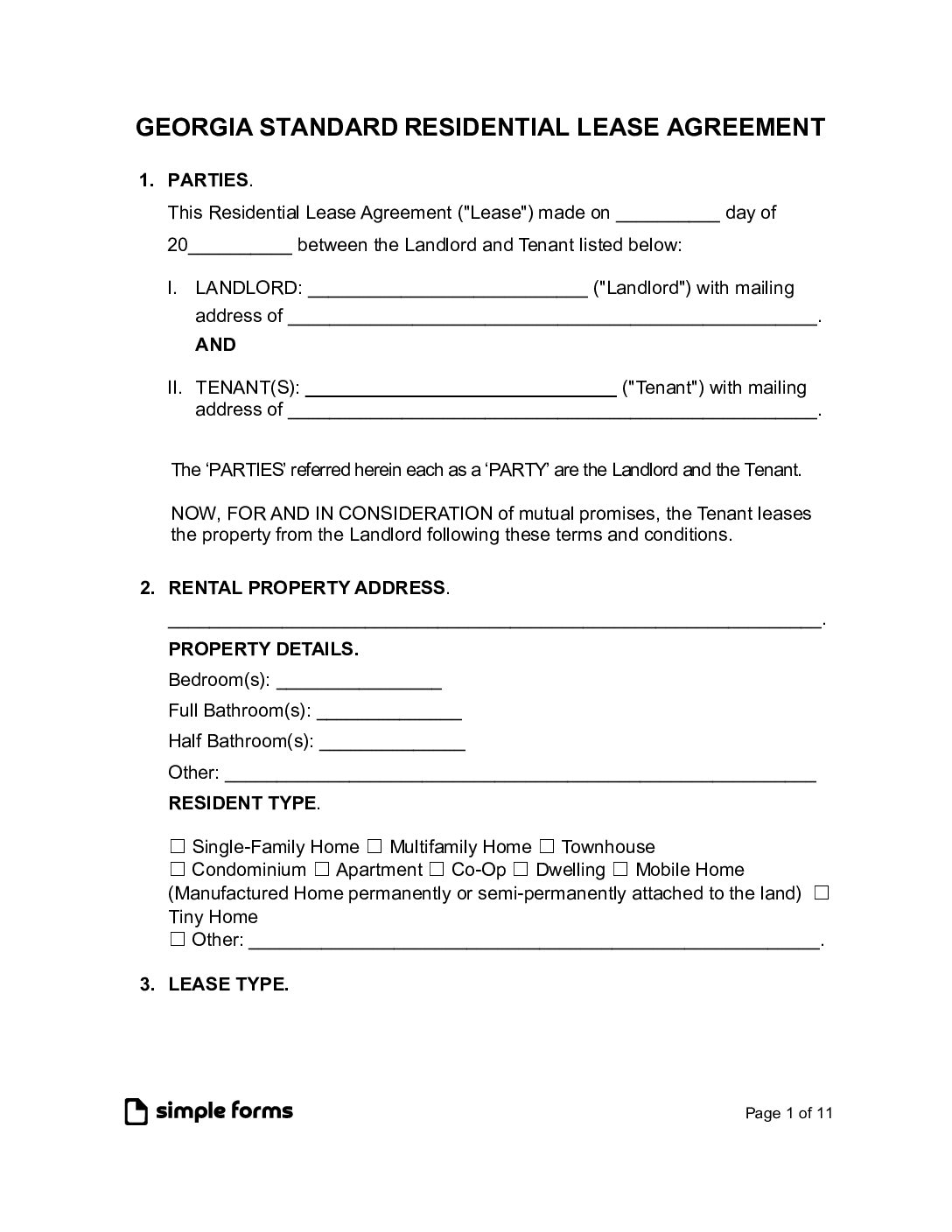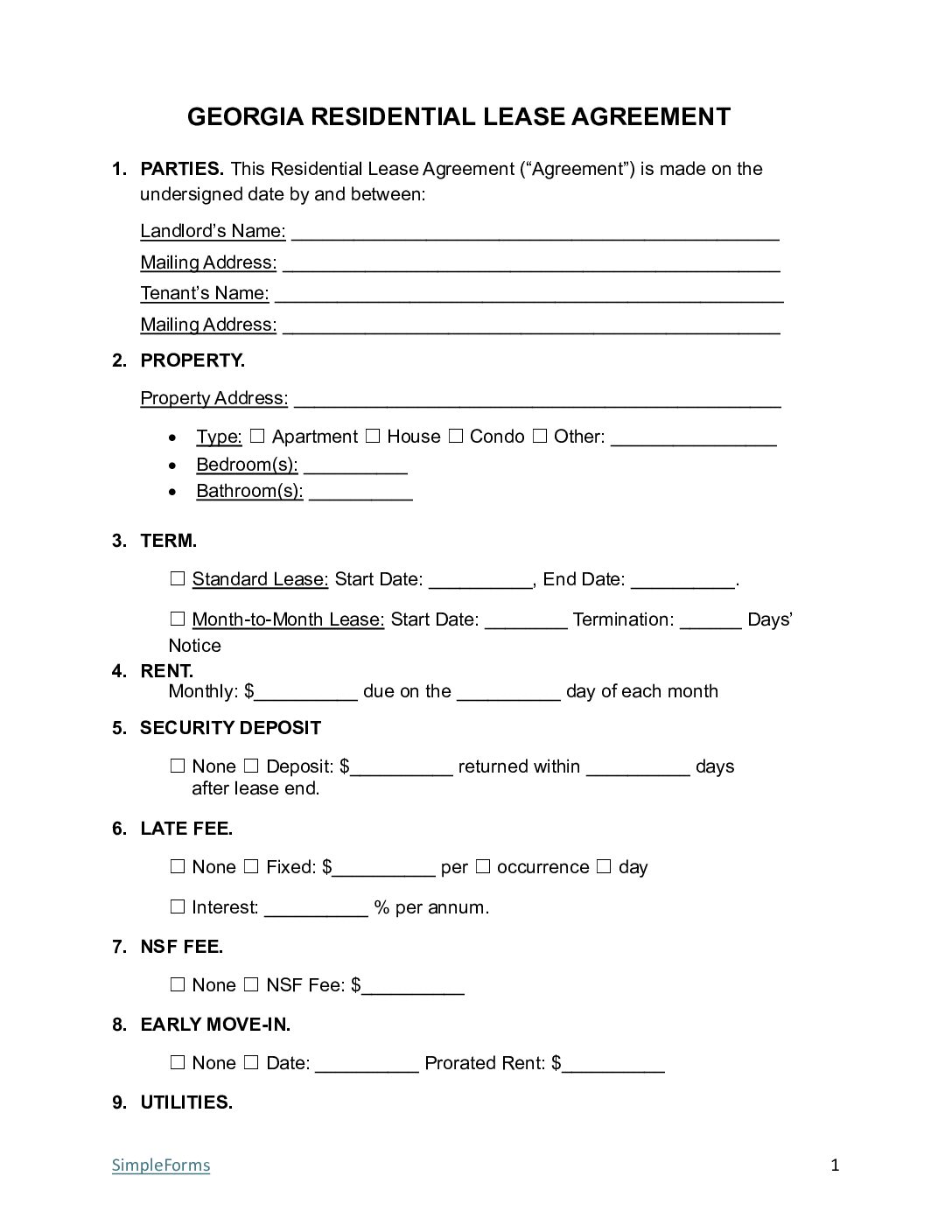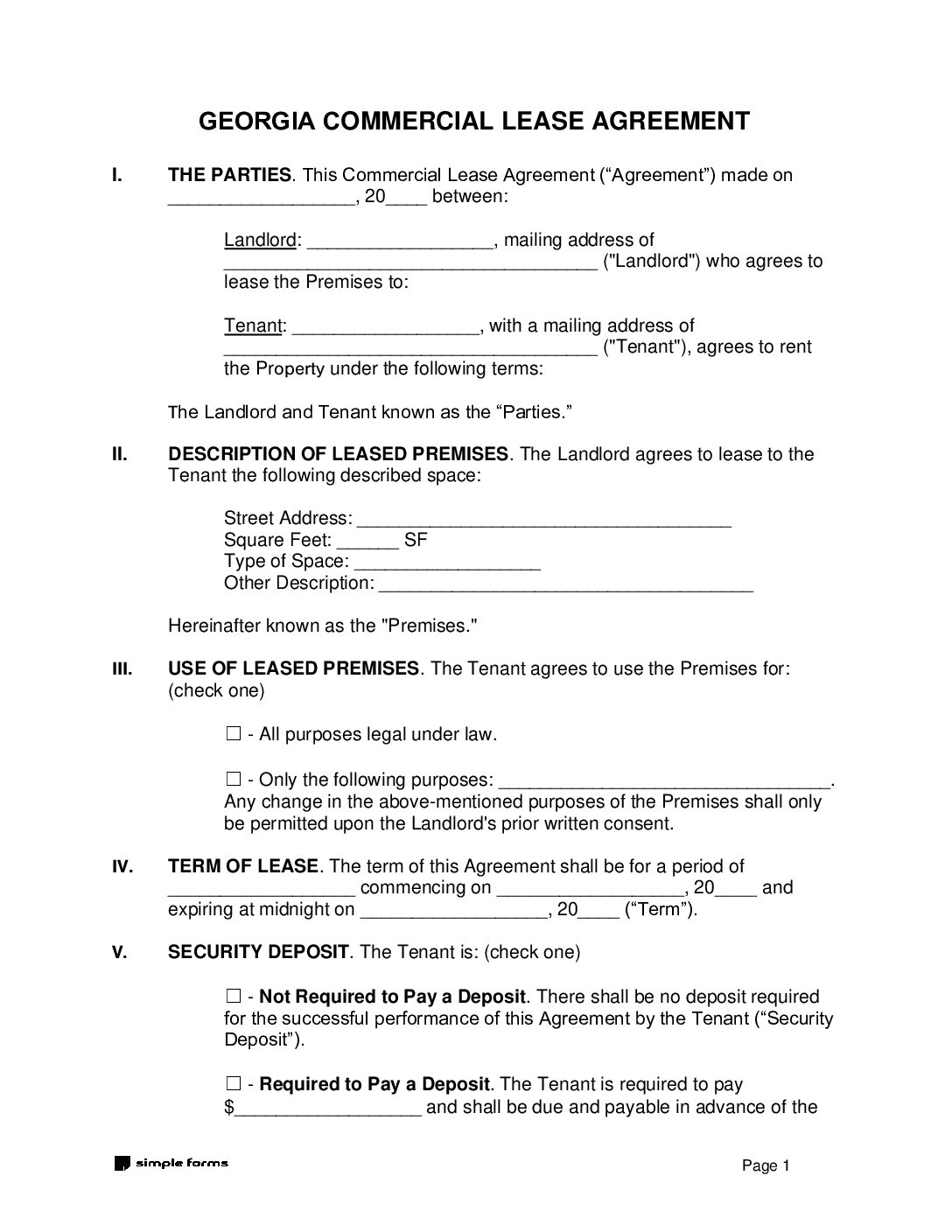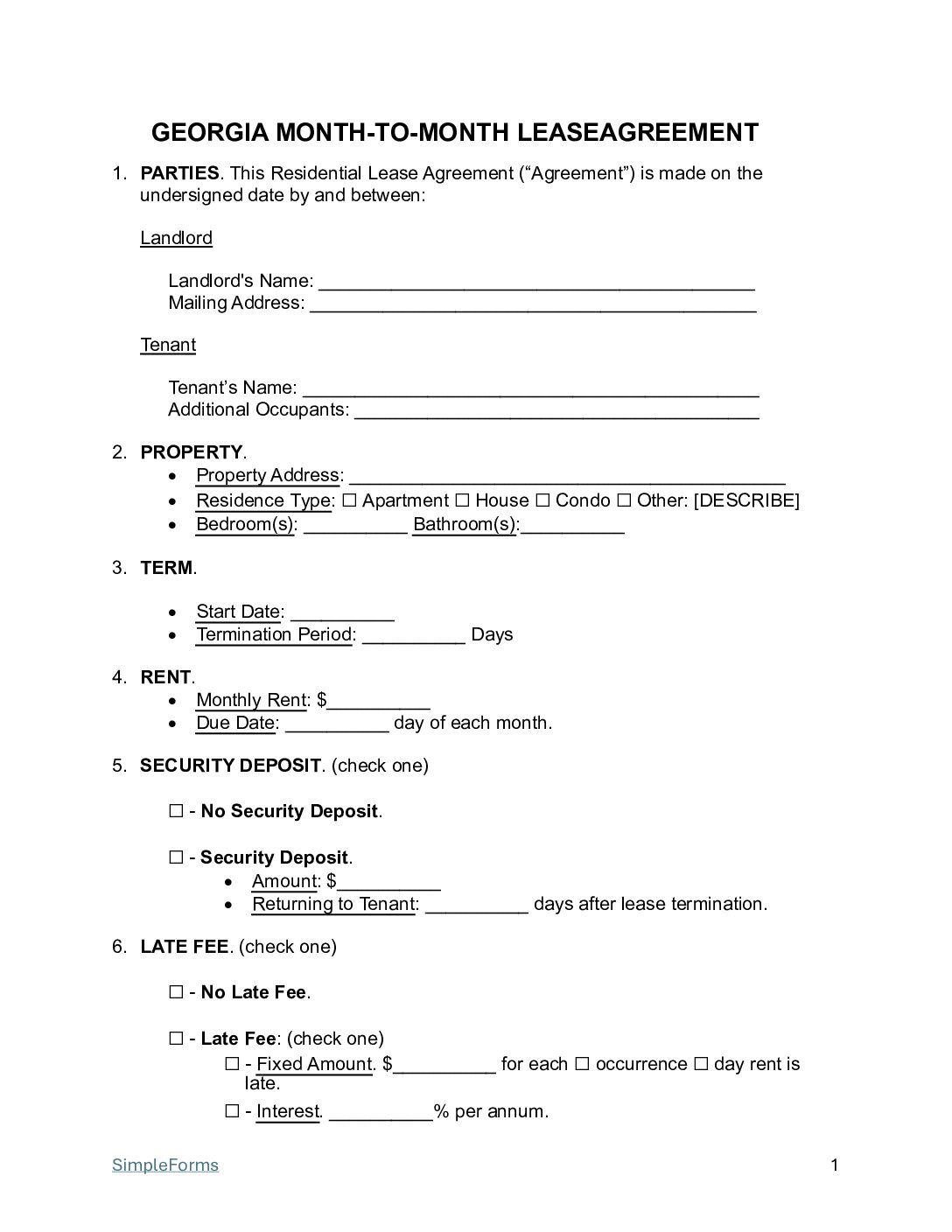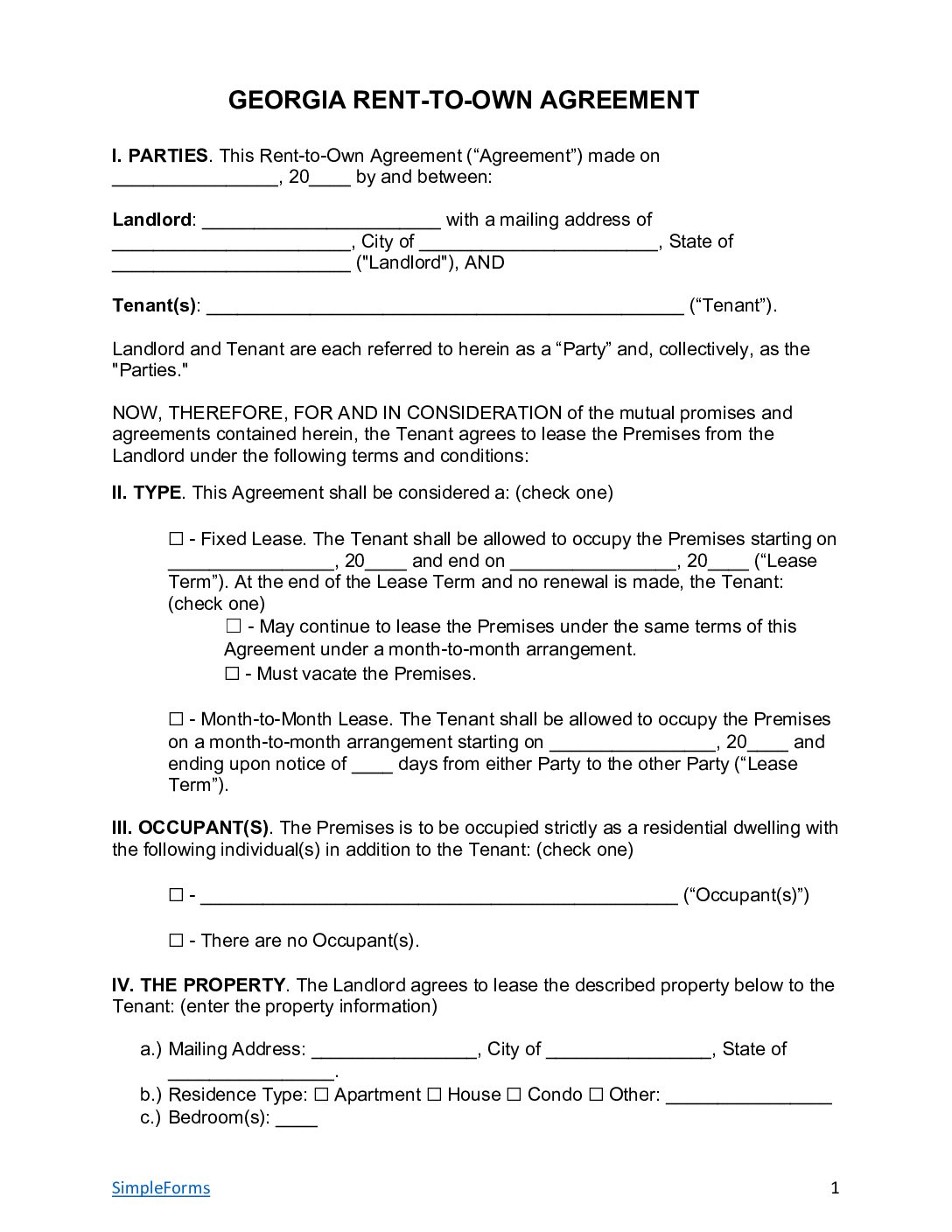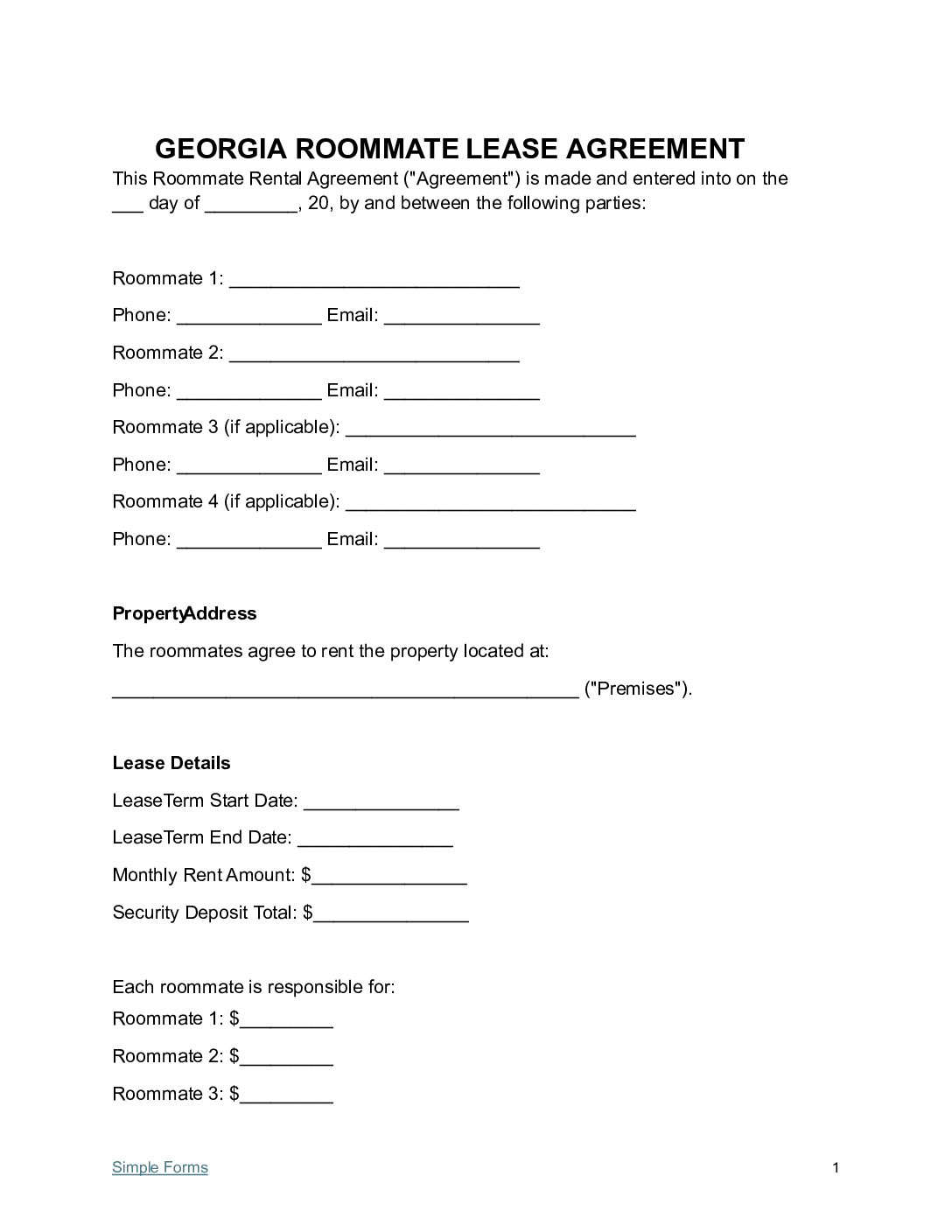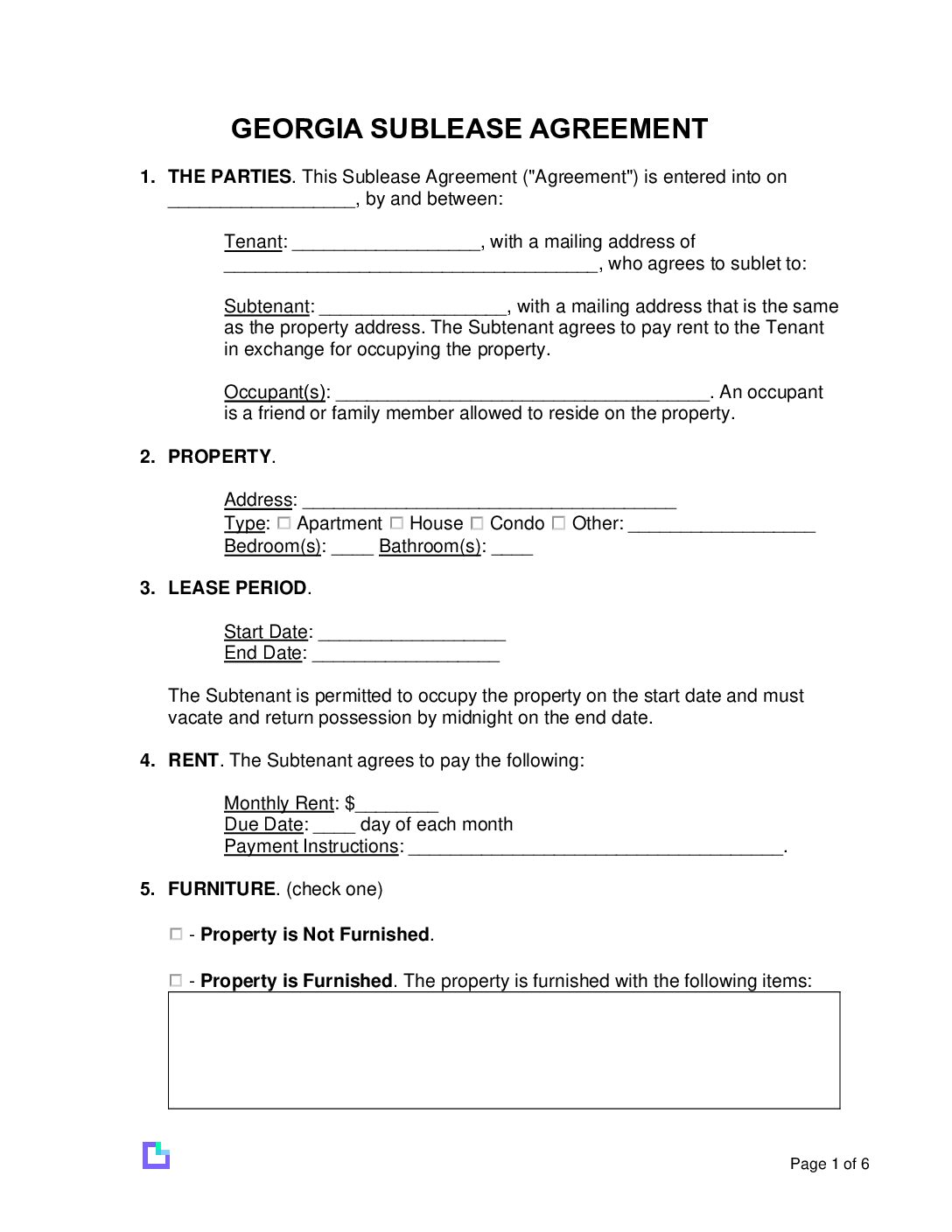By Type (7)
Georgia Association of Realtors Lease Agreement
What the form covers?
This document includes the following laws between the landlord and tenant in Georgia:
- Gerogia Residential Landlord and Tenant Handbook
- Security Deposit Law
- Lease Termination
- Landlord’s Access to the Property
- Due Dates and Late Rent Fees
- Eviction Procedures
- Required Disclosure Forms
Georgia Residential Landlord and Tenant Handbook
The Landlord and Tenant Handbook governs the landlord-tenant relationship in Georgia.[1]
Security Deposit Law
- Return- landlords can charge a security deposit but must return it (minus deductions for damages) within one (1) month after the tenant moves out.[2]
- Itemized List – Deductions must be itemized in a written list and provided to the tenant.
- Separate Bank Account – Deposit must be held in a trust account.[3]
Lease Termination
Both landlords and tenants can terminate a lease under the following situations:
- Landlord’s Ability to Terminate
- 3-day notice for failure to pay rent.
- 7-day notice to fix a lease violation.
- Tenant’s Ability to Terminate
- With proof of domestic violence (police report).
- Provide 30 days’ notice to terminate a month-to-month lease.[4]
Landlord’s Access to Property
Due Dates and Late Rent Fees
Eviction Procedures
Required Disclosure Forms
- Landlord/Property Owner Identification – Landlord’s Name and Address – The landlord must provide their name and address to the tenant at the start of the lease and update any changes within 30 days.[9]
- Move-in / Move-out Inspection Form – The landlord must document and share the property’s condition before collecting a security deposit.[10]
- Lead-Based Paint Disclosure and EPA Pamphlet – If the property was built before 1978, federal law requires this document to be included with the lease.[11]
- Flood Disclosure Form (conditional) – Tenants must be informed if the property has flooded three or more times in the past five years.[12]
Sample Georgia Rental Lease Agreement
Sources
Georgia Lease Agreement Checklist
✅ Before Signing Checklist
Landlord Preparation:
Tenant Preparation:
✅ After Signing Checklist
First Week Actions:
